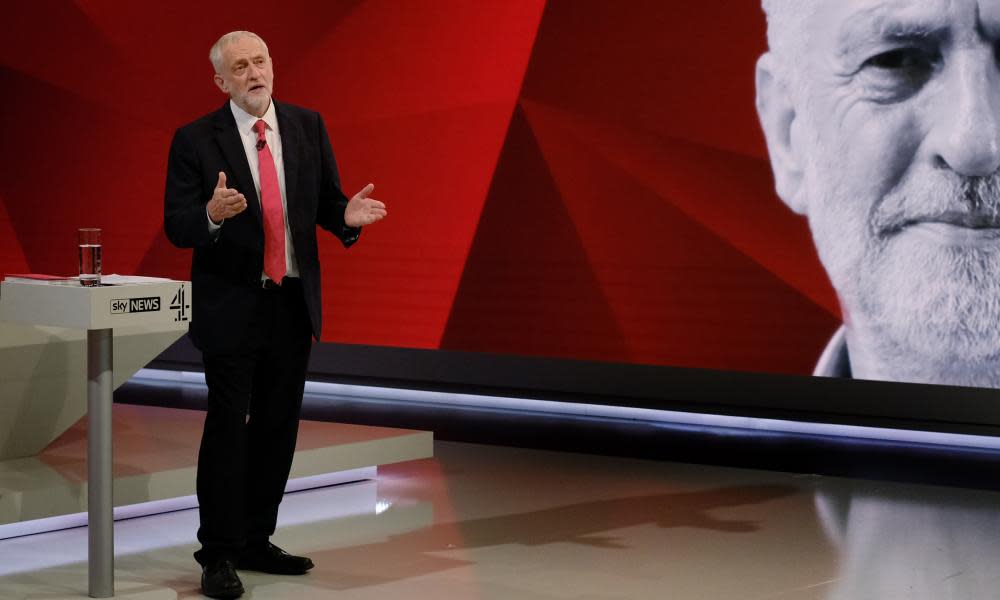Corbyn and May escape unsinged as Paxman lets rip with flamethrower | Hugh Muir

The danger with our embrace of the televised election debate is that we have all come to expect too much from them. Theresa May was reportedly keen to stay clear of any head-to-head confrontation with Jeremy Corbyn.
He, presumably looking for a gamechanger, was enthusiastic to look her in the face. But John F Kennedy versus a fatally sweaty Richard Nixon was more than 50 years ago. Pendulum swings on that scale have barely occurred since.
The fact is that both Corbyn and May probably emerged from their grilling by a studio audience, allied to the verbal flamethrowing of Jeremy Paxman, reasonably satisfied.
That neither massively reset the dial can be presented as a disappointment. But both will at least feel their campaigns can continue on already set trajectories.
That can be seen as a notable achievement for Corbyn, whose performance as a retail politician is clearly improving. His baptism in front of the studio audience was a fiery one, forcing him immediately to defend his stance after the Manchester bombing, linking the chaos of terrorism to foreign policy.
Then his exact detail of what he did or didn’t do or say about the IRA. Then a brickbat from a Labour man who said he approved of the manifesto but not the Labour leader himself.
Following close behind, audience scepticism of his stance on immigration post-Brexit, a lament from a swing voter that his Labour had been lame in opposition to Brexit.
A businessman pointed to putative rises in corporation tax and VAT for school fees and in the minimum wage. A feisty questioner wanted to know if Corbyn would press the button on a nuclear bomb.
And, through it all, Corbyn cut a confident figure, primarily because to his moral credit, if not long-term practical benefit, he has resolved not to trim. His positions are his positions. Voters will take them or leave them.
Answering audience questions on police numbers, the dementia tax, school funding, NHS funding and Brexit, May seemed the less capable retail politician, a figure aloof, unconcerned with charisma.
Addressing schools and the dementia tax, she was briefly heckled. And yet she seems content with an approach that says the voters don’t have to like her to want her in charge. It worked for Margaret Thatcher, and may again.
As each moved from the audience to face Paxman, the parallel lines along which they will proceed to 8 June became clear.
May was quizzed about Brexit, occasionally on hostile terms, but still she was in the broad election territory she herself has chosen. Corbyn, by contrast, spent most of his time, with the audience and with Paxman, fighting against a headwind to find his landmarked territory of social policy and anti austerity.
He was forced to disseminate his policy nuggets while talking about things he would rather park – the IRA, Hamas and positions on nuclear weapons.
He is having a good election and he had a good debate. But his toughest opponent was his own history.

 Yahoo News
Yahoo News 
